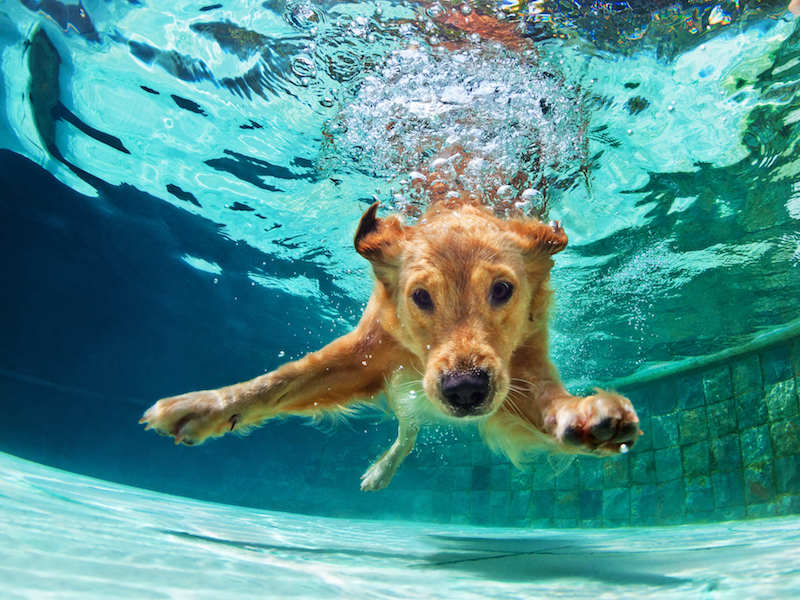
There are a lot of different things that can harm the delicate technology that makes a hearing aid function the way it does, but few have the impact of water. Hearing aids seem to self-destruct under extreme moisture conditions. Taking that into consideration, humidity is a huge problem.
Invisible moisture has the highest chance of causing permanent damage. It’s essential to educate yourself about why humidity damages hearing aids.
Understanding Humidity
Humidity is a word that gets talked about a lot, especially during the summer months, but what is humidity? PBS defines humidity as water molecules in the air. The relative humidity refers to the ratio of water molecules in the air compared to how many the air can actually hold. The higher the percentage, the wetter everything feels.
People are very sensitive to humidity because sweat is the most effective way to cool the body. When you sweat it evaporates into the air, but that doesn’t happen as quickly when the humidity level is very high. Moisture and electronics don’t mix well and that includes hearing aids.
Why Hearing Aids Have difficulty with Humidity
Too high or, too low, humidity can impact your hearing aids. When it’s too moist, the delicate electronics will accumulate condensation. When it’s too dry things become more brittle.
Hearing aids depend heavily on internal electronics to work. Modern digital hearing aids use a sophisticated audio processing chip to control noise. Because of this, you get amazing features like:
- Noise reduction
- Anti-feedback
- Targeted listening programs
- Digital sound streaming
High humidity causes moisture to collect inside the hearing aids destroying that chip. It can corrode elements inside the casing and destroy batteries also. It’s the equivalent of dropping your hearing aid in a pool of water.
How to Get A Handle On Humidity
If you are shopping for hearing aids, look for products that are water-resistant. Having this feature doesn’t mean you can swim with your hearing aids in place, but it does provide some protection against humidity and other weather-related concerns such as getting caught in an unexpected rainstorm or even sweat when you work out.
When it’s very humid try to reduce indoor water vapor by utilizing a dehumidifier. It’s an investment that will help you and your family in numerous ways and protect other electronic devices like that costly TV you got for Christmas. Dust mites, mildew, and mold thrive in moist environments so a dehumidifier will improve the quality of breathing as well. Although a house or room dehumidifier will help protect your hearing aids, it’s not enough. You will need to take other steps at the same time.
Look for the dehumidifier made for hearing aids. There is one out there for every budget. Silica gel crystals in a drying kit are used to protect electronics. Moisture is eliminated by putting the hearing aids into the dehumidifier for a couple of hours. Drying your hearing aids as you sleep at night can be done using specially designed storage containers. In a pinch, you could use a bag of uncooked rice to remove moisture.
Don’t forget to leave the battery door open when you store your device. By pulling that door open before you put the hearing aid down, you expose the batteries and other elements to the air, allowing any condensation built up to evaporate naturally. Do this all year round, not just in the summer months.
A cool dry place is the ideal for storage. Avoid putting them in the glove compartment, in a hot room or on a table in the sun.
Other Moisture Issues
Damage can be caused by other types of wetness. Don’t forget to think about other types of wetness like:
- Don’t touch your hearing aids with hands that are still moist from lotion.
- Find a safe place to store your hearing aids if headed for the pool or beach.
- When exercising wear a sweatband. If you are wearing your hearing aid then it’s a good idea in general. Later that sweat will cause problems.
- Check surfaces before you put your hearing aid down. You don’t want to place it in a wet spot left by a glass or coffee cup.
Your hearing aids are a valuable asset, so treat them that way. Keep in mind how moisture can damage your hearing aids and make sure to prevent water from getting in them. If your hearing aid already has water damage make an appointment for service with a hearing aid specialist.

